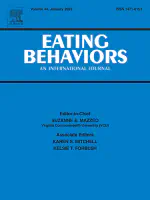Chinese translation of the Clinical Impairment Assessment (CIA 3.0): Psychometric properties and measurement invariance across sex and age in adolescents, young adults, and adult men

Abstract
The Clinical Impairment Assessment (CIA) is the most widely used instrument for assessing psychosocial impairment related to eating disorders (EDs). The CIA was translated into Chinese based on standard procedures. The psychometric properties of the Chinese CIA (C-CIA) were assessed among four adolescent and adult samples [i.e., 792 junior high school students (47.0% boys; Mage = 13.09 years), 1324 senior high school students (44.2% boys; Mage = 16.06 years), 812 undergraduate students (36.3% boys; Mage = 18.88 years), and 406 male adults from a general population (Mage = 28.53 years)]. The three-factor structure of the CIA was replicated. Excellent internal consistencies of the C-CIA were revealed, α = 0.93–0.98. The C-CIA showed moderate and good test-retest reliability in a six-month interval for junior high school students (ICC = 0.69) and senior high school students (ICC = 0.76), respectively. The C-CIA had good test-retest reliability in a two-week interval for undergraduate students (ICC = 0.78) and general adult men (ICC = 0.81). Our results supported good construct validity, known-group validity of the C-CIA, and measurement invariance across sex and age. These findings suggest that the C-CIA can be a useful tool assessing psychosocial impairment related to EDs for Chinese adolescents, young adults, and adult men.